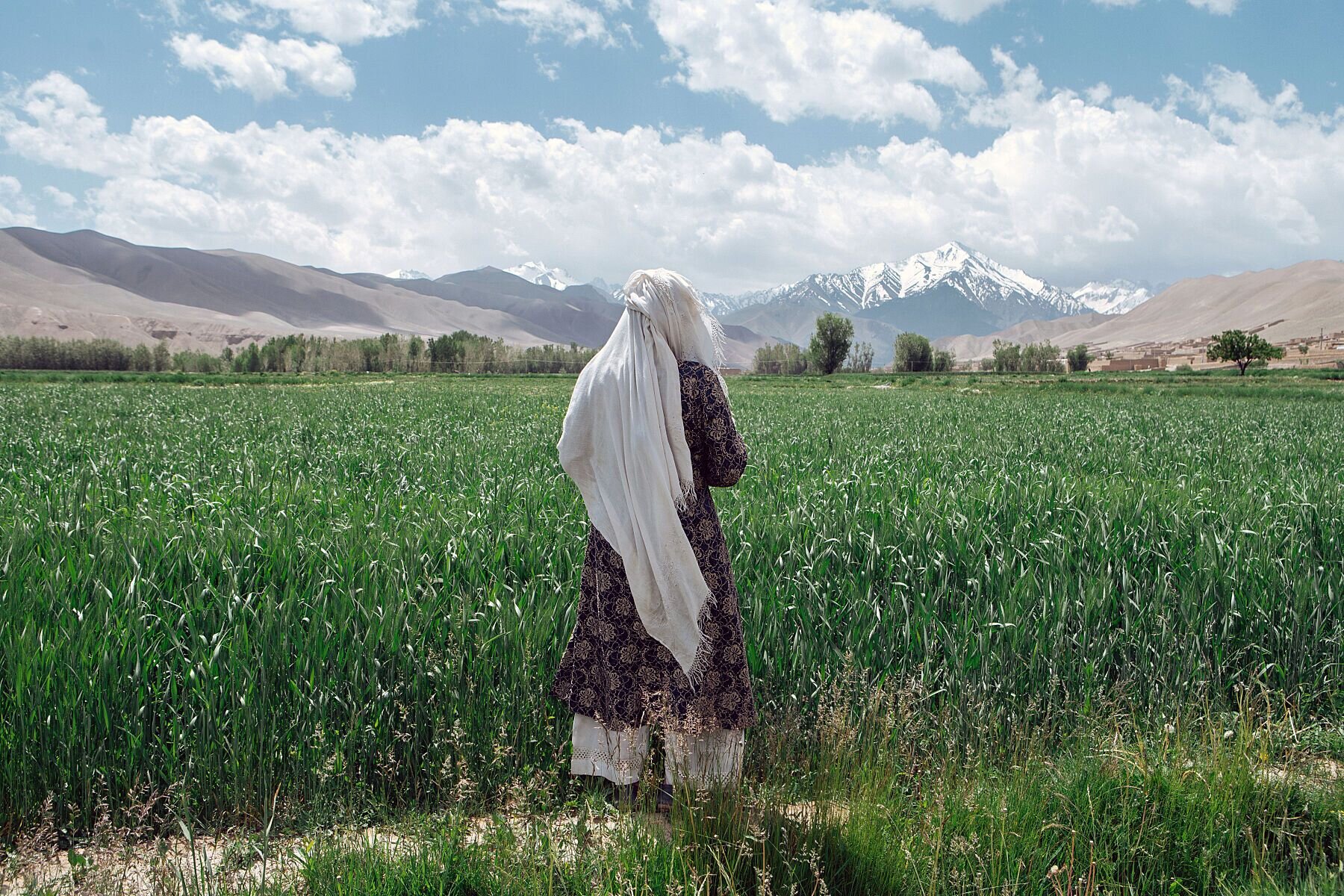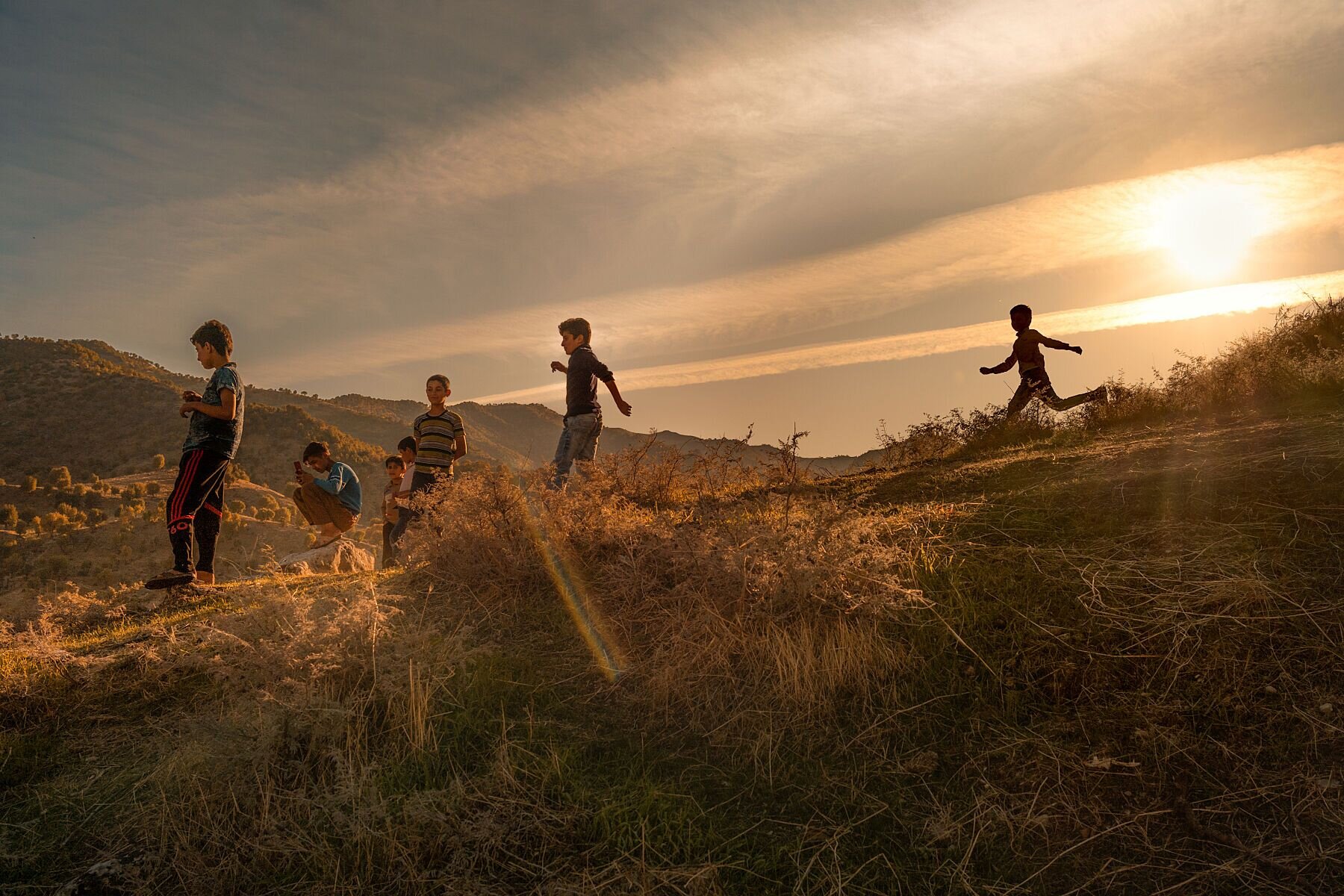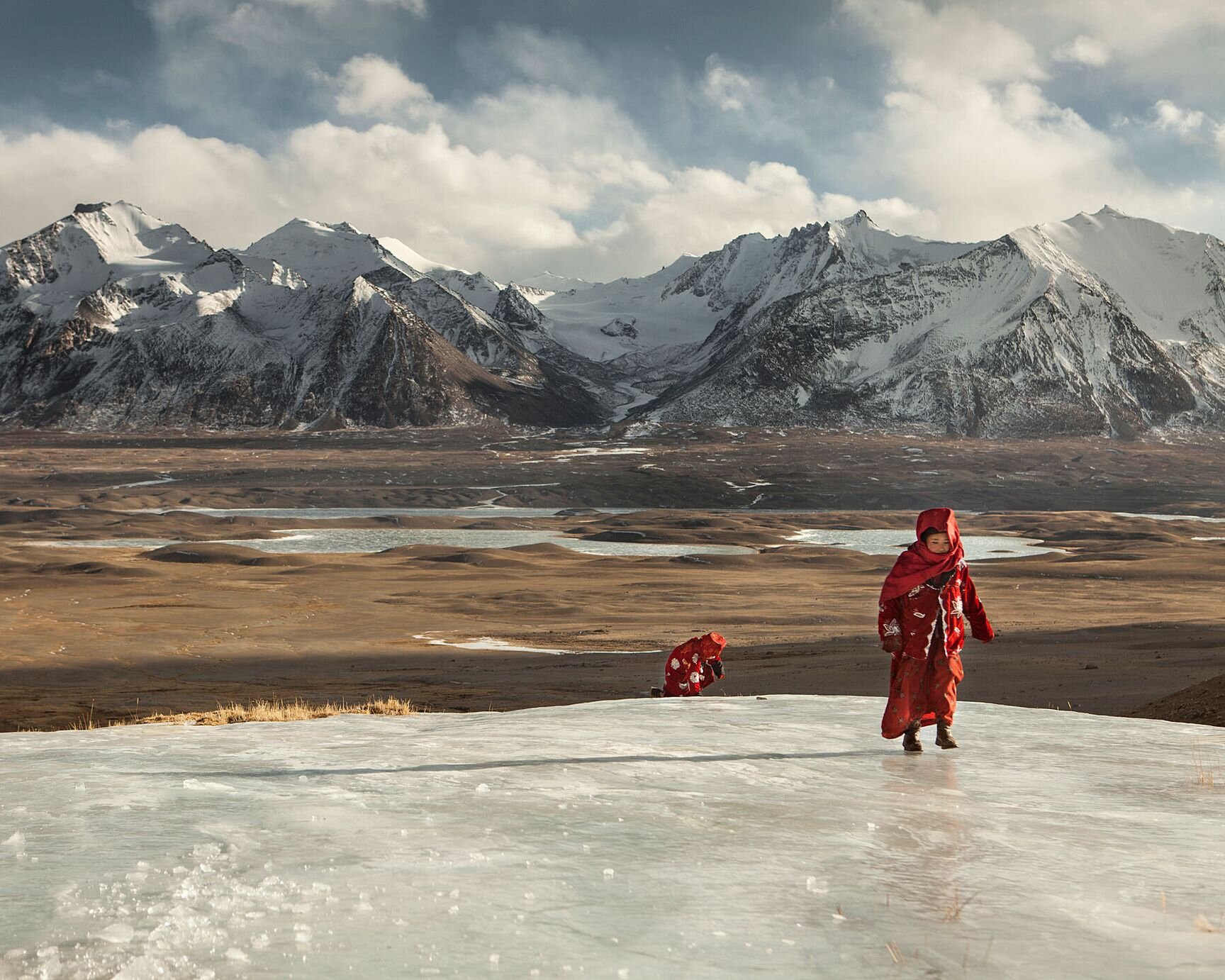Pictures for Purpose
EMERGENCY Print Sale for Afghanistan
Andrew Quilty | @andrewquilty
"As Kabul and regional capitals went into lockdown on March 28, men with wheelbarrows began to line the empty thoroughfares of cities, sitting on their upturned hulls. These men, who provide day labor or carry groceries for shoppers, are known as karachais. In Afghanistan, they have come to symbolize not just a health crisis, but a food and livelihood crisis. Prior to the pandemic, 83 percent of Afghans were living on or below the equivalent of $1.50 per day. When businesses were shuttered across Kabul, many families faced the choice of starving or going into debt to pay rent and buy food. This is Noor Alam, 70, from the Shomali Plain north of Kabul. He says before the lockdown he would make 100 - 150 Afghani (US$1.30 - 2.00) a day, a lower amount than most karachais because, he says, he is old and can't carry as much." - Andrew Quilty
Print by Solmaz Daryani | @solmazdaryani
"Afghanistan is one of the most vulnerable countries in the world to climate change, and one of the least equipped to handle what’s to come. Women are among the most severely affected in Afghanistan as they rely on natural resources sensitive to changes in climate for their daily tasks, such as household water supply." - Solmaz Daryani
Award-winning photographers have donated images from their archives to a special print sale organised by ISHKAR with 100% of the profits going to @emergency.ngo hospitals in Afghanistan. Despite the extremely difficult circumstances, EMERGENCY continue providing non discriminatory healthcare in defiance of the conflict.
The prints are available at special, one-off prices for six weeks: August 4th - September 15th 2021.
Alternatively you can donate what you can through Ishkars dedicated page on EMERGENCY. Funds raised go directly to Emergency’s work in Afghanistan, not elsewhere.
Edition Print by Rena Effendi | @renaeffendiphoto
Photograph taken in Kabul in 2004.
Edition Print by Emily Garthwaite | @emilygarthwaite
"Children run through the hillsides of Akre, Kurdistan Region in Iraq." - Emily Garthwaite
All profits from the print sale will go to EMERGENCY's crucial work in Afghanistan. Donations will fund specialist training of local nurses & doctors, who will go on to treat thousands of patients in need across the country. As the last international troops leave the country, this is more important than ever. The Taliban are rapidly gaining ground and the highest number of civilian casualties have been recorded from the May-to-June 2021 period since the United Nations began monitoring these casualties in 2009. Many of the civilian casualties documented in the report are people who have been treated in EMERGENCY’s wards.
“The situation has deteriorated sharply since the beginning of May. Fighting has intensified in almost all provinces of Afghanistan and we are receiving many more patients than normal.”
Marco Puntin, Country Director for EMERGENCY in Afghanistan.
To read more about EMERGENCY click here
To visit the EMERGENCY dedicated print sale
for Afghanistan click here
Edition Print by Jim Huylebroek | @jimhuylebroek
"Ayoub, Abdul Hassan and Loqman stand on a hilltop overlooking their new home in the mountainous area on the border between Nangarhar and Kunar provinces. They are Afghans born in Pakistan, their families forcefully returned to the country of origin. “Nobody has jobs here, there is no hospital, the city is far away. All our brothers who are old enough have joined the military. There was no other option,” Ayoub said. February 2017 " - Jim Huylebroek
Edition Print by Matthieu Paley | @paleyphoto
"Two young Kyrgyz girls walk up a frozen river to fetch water at the spring on the edge of camp in Ech Keli camp, Afghan Pamir. It was my second winter expedition into Afghanistan’s Pamir mountains. A five-week assignment in rough conditions and extreme cold. We trekked for three weeks, working on a film documentary on the isolated Kyrgyz community." - Matthieu Paley
Edition Print by Omid Scheybani. @omidscheybani
Goes on sale from 17 August
Omid Scheybani. @omidscheybani
“They say that "Afghanistan is full of children, but void of childhood." I don't know where I heard about this line the first time, but it was top of mind for me when I visited Afghanistan in May of 2021. Children were everywhere, begging, working, roaming around. Many times the little money they make on a daily basis is what allows the family to afford rice at the end of the day. The family's reliance on that income is what makes it near impossible to send those kids to school.”Omid Scheybani
Goes on sale from 17 August










